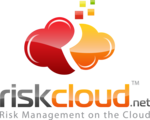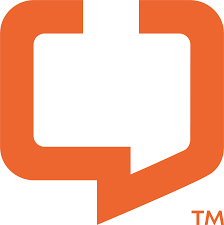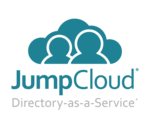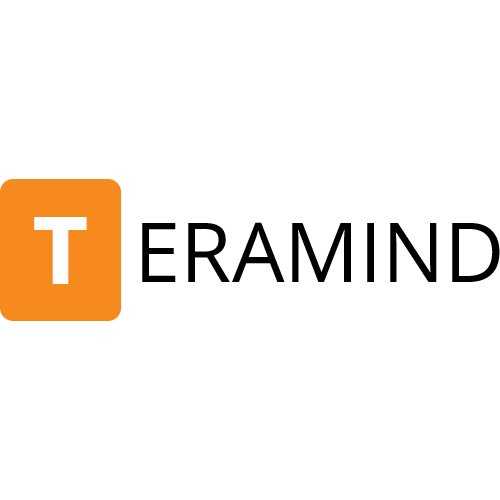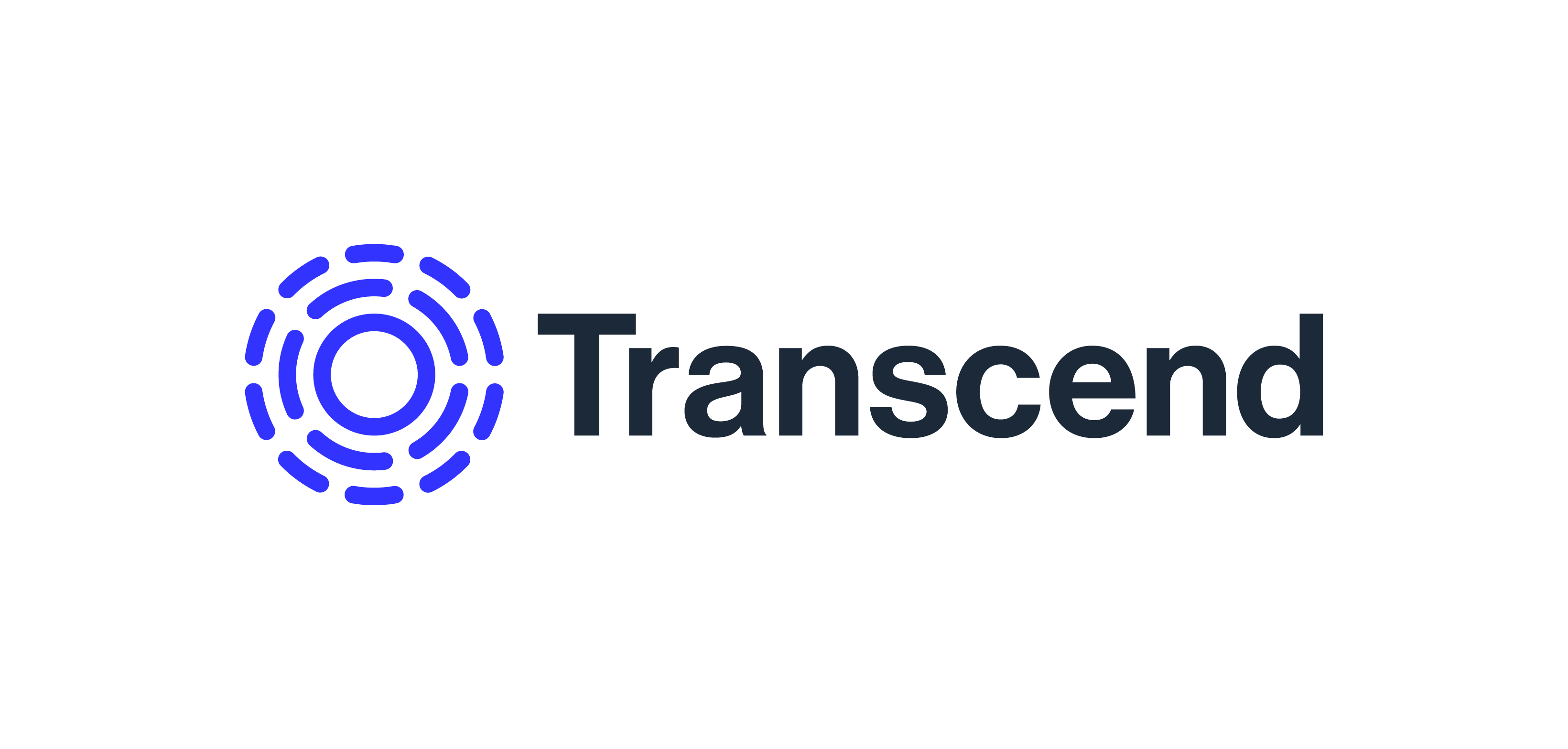Yes, policy management software may be accessible from various devices and platforms. This enables smooth access and cooperation among team members, regardless of their location or preferred device. Cloud storage and mobile compatibility allow customers to simply log in and manage policies from their desktop, laptop, or mobile device. This kind of accessibility significantly improves efficiency and productivity for firms that use policy management software.
List of 20 Best Policy Management Software
Qualys Cloud Platform solution for all your security and compliance needs. With its advanced features and trusted reputation, this comprehensive platform ensures reliable protection for a variety of applications. Count on Qualys to deliver consistent...Read More Qualys Cloud Platform
riskcloud.NET, the premier enterprise risk management software based on ISO31000 standards. Our cloud-based solution offers affordable options for risk management, with instant access to data and a full range of modules for a streamlined process. Lev...Read More riskcloud.NET
myPolicies - a user-friendly insurance policy management software. Our platform simplifies policy creation, sharing, and approval with its open-source solution and ready-to-use templates. Say farewell to complex policy procedures and hello to a strea...Read More myPolicies
RLDatix is a software that streamlines healthcare operations and prioritizes patient safety. Utilizing various tools like incident reporting, risk management, and compliance features, RLDatix enables healthcare organizations to improve outcomes and e...Read More RLDatix
The Adaptik Suite is a insurance software designed to meet the unique needs of insurance companies. This powerful suite includes policy administration, fully customizable product configuration, and seamless integration capabilities, providing insurer...Read More The Adaptik Suite
MetaCompliance is a security awareness solution designed to educate and empower employees against cyber threats. Our platform offers personalized training, simulated phishing exercises, and policy management tools to strengthen organizational securit...Read More MetaCompliance
JumpCloud DaaS is a directory platform that revolutionizes how you manage identity, access, and devices. Simplify your entire tech stack and say goodbye to the headache of fragmented systems. With JumpCloud, you can enhance security, reduce costs, an...Read More JumpCloud DaaS
iubenda, the highly reliable legal compliance software trusted by over 100,000 businesses globally. Easily create and manage privacy policies, cookie banners, and terms and conditions to meet international legal standards for your website or app. Str...Read More iubenda
T3 CORE, the premier technology solutions provider for custom software, web, and mobile application development. With over 23 years of experience, we revolutionize how businesses achieve their goals through innovative technology solutions. Trust us t...Read More T3 CORE
Discover the power of Elsevier, the top AI-powered healthcare policy management software. Our open-source system allows for effortless management and organization of policies, with the ability to handle large volumes at the click of a button. Access...Read More Elsevier
Teramind goes beyond traditional employee monitoring tools, offering a full range of features to enhance security, efficiency, and data control for businesses. With advanced threat detection, user behavior analysis, data loss prevention, and optimiza...Read More TERAMIND
EisenVault is a cloud-based document management solution tailored for diverse industries. Revolutionize your document management processes with ease and efficiency through EisenVault. Streamline your workflows, enhance security, and enable seamless a...Read More EisenVault
Transcend.io is a compliance solution for businesses. Our platform simplifies the management of user data rights, allowing for easy access, retrieval, and deletion of customer data. With our automated and efficient solution, fulfilling privacy reques...Read More Transcend.io
Symfact is an advanced contract management software with a seamless and easy installation process. Its intuitive interface makes contract and compliance management across multiple industries a breeze. Perfect for governance, it reduces risk and boost...Read More Symfact
360Factors is a policy management solution for all industries. This software automates policy creation, simplifying your risk and document management processes. Keep your policies compliant with the latest legal standards at all times. With 360Factor...Read More 360factors
DAT Online is a software that streamlines logistics procedures. This state-of-the-art solution provides real-time tracking, intuitive interface, and detailed data analysis, empowering businesses to effectively oversee their supply chain and increase...Read More DAT Online
PolicyHub - the leading policy and procedure management software designed to keep your organization compliant with the law. Our advanced tool streamlines policy creation and detects potential legal violations, promoting an ethical workplace environme...Read More PolicyHub
Policy Manager is a tool for effortlessly organizing and maintaining policies while ensuring compliance with constantly evolving legal regulations. This user-friendly system, based on open-source technology, ensures your team stays informed on the la...Read More Policy Manager
Thomson Reuters ONESOURCE solution for simplifying corporate income tax processes. Say goodbye to tedious policy management and say hello to effortless compliance with external regulatory requirements. Our platform boasts a high level of transparency...Read More Thomson Reuters ONESOURCE
TravelPerk - your one-stop solution for business travel booking. Ditch the hassle of using multiple platforms and streamline your reservations, organization, and tracking with ease. Our platform offers customizable travel policies and financial manag...Read More TravelPerk
Learn More About Policy Management Software
- What Is Policy Management Software?
- What Are The Recent Trends In Policy Management Software?
- Benefits Of Using Policy Management Software
- Important Factors To Consider While Purchasing Policy Management Software?
- What Are The Key Features To Look For In Policy Management Software?
- Why Do Businesses Need Policy Management Software?
- How Much Time Is Required To Implement Policy Management Software?
- What Is The Level Of Customization Available In Policy Management Software?
- Which Industries Can Benefit The Most From Policy Management Software?
- Conclusion
What Is Policy Management Software?
Policy management software is an essential tool for businesses of all sizes and industries because it simplifies the process of developing, adopting, and enforcing rules and procedures. Simply said, it is a software system that enables businesses to quickly manage and track their policies, assuring compliance and consistency across the organization. One of the primary tasks of policy management software is to consolidate all policies in a single, easily accessible location.
This eliminates the need for manual tracking and version control, as well as the possibility of obsolete or conflicting policies being distributed. With this software, policies can be modified and distributed throughout the organization with a few clicks, ensuring that everyone is on the same page. Furthermore, policy management software offers a reliable framework for developing and approving policies.
This includes customizable templates, automated workflows, and document versioning, which make it simple to build rules that are consistent with your organization's aims and values. The approval process is also streamlined, with the ability to grant responsibilities and rights to individual users, ensuring that only authorized people can update policies. Another important feature of policy management software is its compliance tracking capabilities.
With the ever-changing regulatory landscape, organizations must stay on top of compliance needs. This software allows users to track and monitor policies, as well as the training sessions that accompany them, ensuring that personnel are up to date on the newest legislation and guidelines. It also provides detailed reports for audits and compliance evaluations, which saves time and reduces errors.
In addition, policy management software provides a centralized and secure platform for document storage and management. This not only protects data privacy, but also removes the possibility of missing or lost policies. It also enables easy policy search and retrieval, saving staff time and effort.
Overall, investing in policy management software can help firms save time and resources on policy-related chores, ensure compliance, and foster a culture of consistency and accountability. When comparing different choices, look for features like centralized storage, customizable templates, compliance tracking, and document version control. With the appropriate policy management software, organizations can stay ahead of the competition while focusing on their core activities with confidence.
What Are The Recent Trends In Policy Management Software?
Policy management software is a vital tool for firms of all sizes and industries that want to successfully manage their rules and procedures. With the ever-changing regulatory landscape and growing demands for transparency and compliance, policy management software has advanced significantly in recent years. As a buyer, it is critical to stay current on these developments in order to make an informed selection when choosing a policy management system.
Here are some of the current developments in policy management software that you should be aware of:
1. Automation And Integration: One of the most important trends in policy management software is the automation of manual operations and their integration with other systems. With a large number of policies and procedures to oversee, automation streamlines the process and reduces the danger of human error. Furthermore, connection with other systems like as document management, training, and compliance systems provide a consolidated platform for policy management, increasing efficiency and effectiveness.
2. Cloud-Based Solutions: Cloud-based solutions, including policy management software, have been increasingly popular in recent years. Cloud-based solutions allow businesses to access rules and procedures from anywhere, at any time, making them an excellent alternative for remote and worldwide teams. It also lessens the burden of maintenance and upgrades on the IT team, allowing them to focus on more important responsibilities.
3. Mobile Accessibility: As more people utilize mobile devices in the workplace, policy management software has grown more mobile-friendly. Employees may now access policies and procedures on the go, which improves compliance and productivity. It also makes the software more user-friendly and intuitive, resulting in a superior user experience.
4. Analytics And Reporting: Data-driven insights are critical for firms to make sound decisions and improve policy management processes. That's why many policy management software systems now include powerful analytics and reporting capabilities. These tools give customers a full perspective of their policy usage, compliance rates, and training completion information, allowing them to pinpoint areas for improvement.
5. Artificial Intelligence: The use of artificial intelligence (AI) in policy management software is becoming increasingly popular. AI-powered solutions can assist with processes such as policy drafting, updating, and tracking, hence improving efficiency and accuracy. It also allows the program to adapt to changing legislation and standards, maintaining consistent compliance at all times.
Benefits Of Using Policy Management Software
Policy management software is a valuable tool for businesses of all sizes because it allows them to conveniently store, access, and update their policies and procedures. Businesses may assure compliance while saving time and costs by using a centralized platform to manage their rules.
Let's look at the top benefits of implementing policy management software in your firm.
1. Streamline Policy Creation And Updates: Policy management software enables firms to easily establish, edit, and disseminate policies. Companies may simply build policies that meet their own needs and criteria thanks to an easy-to-use interface and templates. Additionally, updates and adjustments can be done in real time, guaranteeing that all employees have access to the most recent versions.
2. Enhanced Compliance: Businesses must ensure that they comply with all applicable laws, regulations, and industry standards. Policy management software makes this process easier by offering automated tracking and reminders for policy revisions, ensuring that all policies are up to date and in compliance with regulatory requirements. This feature eliminates the possibility of noncompliance and associated legal implications.
3. Easy Accessibility: Businesses that use policy management software can say goodbye to manual filing systems and paperwork searches. The program enables easy digitalization and centralized storage, making it simple for staff to access regulations from anywhere. This function is especially useful for remote or mobile workers who need to be informed about corporate policies.
4. Improved Efficiency And Productivity: The use of software to automate and streamline policy management considerably improves workplace efficiency. Automating processes such as alerts, approvals, and verifications saves time for both management and staff. This allows staff to focus on their main responsibilities, increasing productivity and preserving critical resources.
5. Comprehensive Reporting: Policy management software gives firms a complete picture of policy distribution, acknowledgments, and staff knowledge. The software delivers reports on policy modifications, acknowledgments, and training completion, allowing management to confirm that all employees have read and understood the policies.
6. Risk Was Mitigated: In today's company environment, having clear and easily accessible policies is critical for risk mitigation. Policy management software helps businesses reduce risks by providing a standard method for managing policies and ensuring that all employees have access to them. This tool can help organizations avoid legal ramifications and reputational damage.
Important Factors To Consider While Purchasing Policy Management Software?
When it comes to choosing policy management software, several critical considerations must be examined to ensure that you make the best investment for your firm. These elements may differ depending on your unique requirements and tastes, but several fundamental aspects are universal.
Here are the main points to consider while selecting policy management software:
1. Features And Functionality: The software's features and functionality are the most important factors to evaluate. Create a list of must-have features for your firm and compare them to the offerings of several software solutions. Look for capabilities like policy formulation, distribution, tracking, and reporting, as well as any other tools and integrations that may be useful to your organization.
2. Usability: User friendliness is critical to the success of any software implementation. Make sure the policy management software you chose is intuitive and user-friendly, with a straightforward and organized interface. This will save time and shorten the learning curve for your personnel.
3. Customization Options: Each organization has its own policies and processes. As a result, it is critical to select policy management software that enables for customization based on your individual requirements. This could contain custom fields, templates, workflows, and branding options.
4. Data Security: Since the software stores important policy information, data security is a high responsibility. Look for software that includes high levels of security, such as encryption and role-based access, to secure company regulations and procedures.
5. Customer Assistance: It is critical to have dependable customer assistance while deploying new software. Look for a vendor that provides good customer service, such as training, technical support, and regular updates.
6. Scalability: As your firm expands, so will its policy management requirements. It is critical to select software that can meet your future requirements and can be scaled up as your firm grows.
7. Integration With Existing Systems: Think about the systems and software your business already uses, and make sure the policy management software can readily interact with them. This will improve the flow of information and streamline your procedures.
8. Budget: Policy management software can range from basic to advanced, and the price can vary greatly. Determine your budget and weigh it against the features, functionality, and potential return on investment provided by various software solutions.
Keeping these criteria in mind allows you to make an informed selection when selecting policy management software for your firm. Remember to thoroughly investigate and demo many possibilities to discover the one that best meets your requirements and enables your firm to properly manage policies and processes.
What Are The Key Features To Look For In Policy Management Software?
When choosing policy management software, it is critical to evaluate many essential characteristics to ensure that it fits your organization's requirements and maximizes effectiveness. These features should contain the following:
1. Customization Options: Because each organization has its own set of policies and procedures, it is critical to select software that allows for flexibility. Look for tools that let you establish, update, and organize regulations based on your individual needs.
2. Centralized Platform: One of the primary advantages of policy management software is the ability to consolidate all rules and processes in a single area. Look for software that provides a simple and accessible platform for storing, accessing, and updating policies.
3. Document Control: Policy management software should provide comprehensive document control features. This involves version control, tracking changes, and ensuring that the most recent policies are implemented throughout the organization. 4. Compliance tracking: Any firm must ensure that it follows all rules and regulations. Look for software that can track compliance changes and updates, as well as generate reports and alerts, to ensure that your rules always meet the most recent criteria.
5. Collaboration Tools: Policy management frequently requires input from various stakeholders. To speed the policy design and approval process, use software that enables for collaboration, such as work assignment and team member input.
6. Search Functionality: With such a big number of policies and procedures, it is critical to have software that allows you to easily search for and identify specific policies. Look for extensive search capabilities, including as keywords, tags, and filters, to easily find the insurance you require.
7. Reporting And Analytics: Policy management software should provide reporting and analytics tools for tracking policy usage, compliance, and user feedback. This data can provide useful insights and help identify areas for improvement.
8. Integration With Other Systems: To guarantee that operations run smoothly, select software that can integrate with other systems in your firm. This may include HR, training, and document management systems. When considering policy management software, keep these essential aspects in mind to help you choose a system that not only satisfies your present needs but is also scalable for future expansion.
Why Do Businesses Need Policy Management Software?
As businesses become more complicated and regulations shift, organizations must have a simplified and thorough approach for maintaining policies. Here's where policy management software comes in. This powerful tool enables firms to rapidly establish, amend, and publish policies while maintaining compliance and mitigating risk. One of the most important reasons why firms require policy management software is to ensure compliance with regulatory standards.
With continual regulatory changes and updates, it can be overwhelming for firms to constantly manage and update their policies. Policy management software makes this process easier by automatically tracking and executing updates, ensuring that firms are constantly up to date and compliant. Furthermore, in areas like as healthcare and banking, policy and procedure compliance is required not only for legal reasons, but also to preserve customer trust.
Policy management software promotes transparency and accountability by tracking and auditing all updates and revisions. This not only fosters a compliance culture within the firm, but it also helps to establish credibility with stakeholders. In addition to compliance, policy management software enables firms to manage risks more effectively.
Organizations that centralize rules and procedures can immediately discover possible gaps or discrepancies and take the appropriate steps to prevent risk. This not only protects the company from potential liabilities, but also improves overall operating efficiency. Furthermore, policy management software simplifies the process of examining and approving policies, lowering the strain on stakeholders and allowing them to focus on other vital responsibilities.
This enables a more efficient and collaborative approach to policy management, reducing bottlenecks and delays. Finally, policy management software centralizes and secures policies and related documentation, making them conveniently available to authorized people. This removes the need for manual searches, lowering the likelihood of critical information being lost or misplaced.
How Much Time Is Required To Implement Policy Management Software?
The implementation time for policy management software varies according to your organization's specific needs and requirements. Typically, the time required ranges from a few weeks to several months. This timeline includes duties like gathering and arranging regulations, configuring software, training staff, and integrating with other systems.
Some elements that can influence implementation time include the size of your organization, the complexity of your policies, and the level of customization required. Smaller firms with simpler policies may be able to install the software faster than larger organizations with more complicated policies. Additionally, the availability of resources inside your firm, such as IT staff and finance, might have an impact on implementation time. Adequate resources and support can help speed up the implementation process.
It is crucial to note that implementation time is not the only factor to consider when selecting policy management software. It is critical to select software that is user-friendly and has extensive support and resources to assist you with the implementation process. In the long term, devoting the necessary time and effort to properly integrate the software can result in a more efficient and successful policy management system for your firm.
What Is The Level Of Customization Available In Policy Management Software?
Policy management software provides a high level of customization to meet the unique demands and requirements of various businesses. This program allows firms to effortlessly create and maintain company policies, processes, and guidelines in a consolidated digital platform. One of the primary aspects of policy management software is the ability to modify policies based on the company's logo and terminology.
This ensures that the policies are in line with the organization's values and communications, making them more effective and understandable to employees. In addition to branding, policy management software provides for the customization of policy templates to meet the needs of various sectors and compliance laws. This feature saves organizations time and effort by allowing them to select pre-built templates relevant to their industry and modify them to their individual requirements.
Furthermore, policy management software allows you to create custom fields and sections inside policies to incorporate additional information or details, making the policies more complete and tailored to the organization's needs. This program supports role-based access and permissions, in addition to policy customisation. Businesses can grant varying levels of access to people or groups within their business, ensuring that only authorized personnel have access to important rules.
Overall, policy management software is very customizable, making it a flexible and useful solution for businesses of various sizes and industries. Organizations may effectively convey company policies and maintain employee compliance by tailoring policies to their specific needs and requirements.
Which Industries Can Benefit The Most From Policy Management Software?
Policy management software can benefit a wide range of sectors by providing a comprehensive solution for the formulation, distribution, and enforcement of policies and procedures. Certain industries, however, stand to benefit the most from the implementation of policy management software. Let's take a look at some of these sectors and how they might profit from this software.
1. Healthcare Industry: In the healthcare industry, compliance with complicated rules and policies is critical. Policy management software may speed up the process of developing and disseminating policies, ensuring that all employees are up to date and in accordance with regulations. It can also track and report on policy acknowledgments, which saves healthcare companies time and effort.
2. Financial Services Industry: The financial services industry is heavily regulated, with ever-changing policies and regulations. Financial organizations can use policy management software to keep track of these changes and guarantee that policies are updated and conveyed to staff on time. This can assist you avoid costly compliance issues and guarantee that all staff are following current policies and procedures.
3. Government Agencies: Government agencies must handle a significant number of policies and procedures, which frequently span multiple departments and levels. Policy management software can assist streamline this process, making it easier to establish, review, and publish policies while also ensuring that they are followed by all personnel. It can also generate reports and audits to prove compliance in the event of an audit or probe.
4. Education Sector: Educational institutions have multiple regulations and procedures that must be presented to students, teachers, and staff. Policy management software can help manage and track these policies, ensuring that everyone is up to date on the most recent changes. It can help speed up the evaluation and approval process for new policies, saving time and effort for school administrators.
5. Small And Medium-Sized Businesses: Without dedicated compliance teams, it can be difficult to monitor regulations and assure compliance. Policy management software can help these firms establish, disseminate, and track policies more easily and affordably, lowering the risk of compliance infractions.
Conclusion
Finally, selecting the correct policy management software is critical for any firm wanting to expedite compliance operations and meet regulatory standards. It is critical to conduct extensive research and analyze your options depending on your company's unique demands and requirements. A comprehensive policy management software should provide not only an easy-to-use interface and fast document storage, but also automated workflows, customized policies, and real-time tracking and reporting capabilities.
It should also comply with applicable legislation and offer top-tier security measures to safeguard sensitive information. When making a decision, take into account scalability, integration with existing systems, and vendor support. In addition, look for client reviews and testimonials to acquire insight into the software's functionality and customer happiness.
By investing in reputable policy management software, you may save time and resources, maintain compliance, and ultimately improve your organization's overall effectiveness. We hope this buyer's guide has helped you make an informed decision and locate the best software solution for your business.
Policy Management Software FAQ's
Can Policy Management Software Be Accessed Across Multiple Devices And Platforms?
Is Policy Management Software Future-Proof And Adaptable To Emerging Technologies Like AI, Blockchain Or IoT?
Yes, most modern policy management software is meant to be future-proof and adaptable to upcoming technologies such as artificial intelligence, blockchain, and the Internet of Things. This means that when these technologies advance, software may simply incorporate and exploit them to improve policy management procedures and operations.
Furthermore, these software solutions are continually updated and upgraded to keep ahead of the competition and give its consumers with the most recent features and capabilities. Policy management software, with its focus on adaptability, remains a useful asset in an ever-changing technology context.
Is There A Free Trial Offered To Assess Policy Management Software Before Committing?
Yes, many policy management software companies provide a free trial so that consumers can examine the program before making a commitment. This allows enterprises to evaluate the software's features, functionality, and convenience of use before committing to a subscription. Typically, the free trial period lasts from 7 to 30 days. It is recommended that you take advantage of the trial to determine whether the program fulfills your specific policy management requirements.
Does Policy Management Software Offer Data Security Features And Meet Regulatory Compliance Standards?
Yes, most policy management software has powerful data security safeguards to secure sensitive information. They can also meet regulatory compliance criteria including GDPR, HIPAA, and SOX. These tools use encryption, access controls, and audit trails to ensure data integrity and confidentiality. They also include features like automated data backups and disaster recovery strategies to prevent data loss.
Can Policy Management Software Integrate Seamlessly With Existing Tools And Platforms?
Most policy management software is designed to work easily with existing tools and platforms. This enables a more streamlined and efficient approach to policy management because all necessary information can be accessible and changed in one place. Some software even has connectors with big platforms like Microsoft Office and Google Suite. Policy management software, when integrated with current tools, can improve collaboration and streamline the policy design, implementation, and tracking processes.


